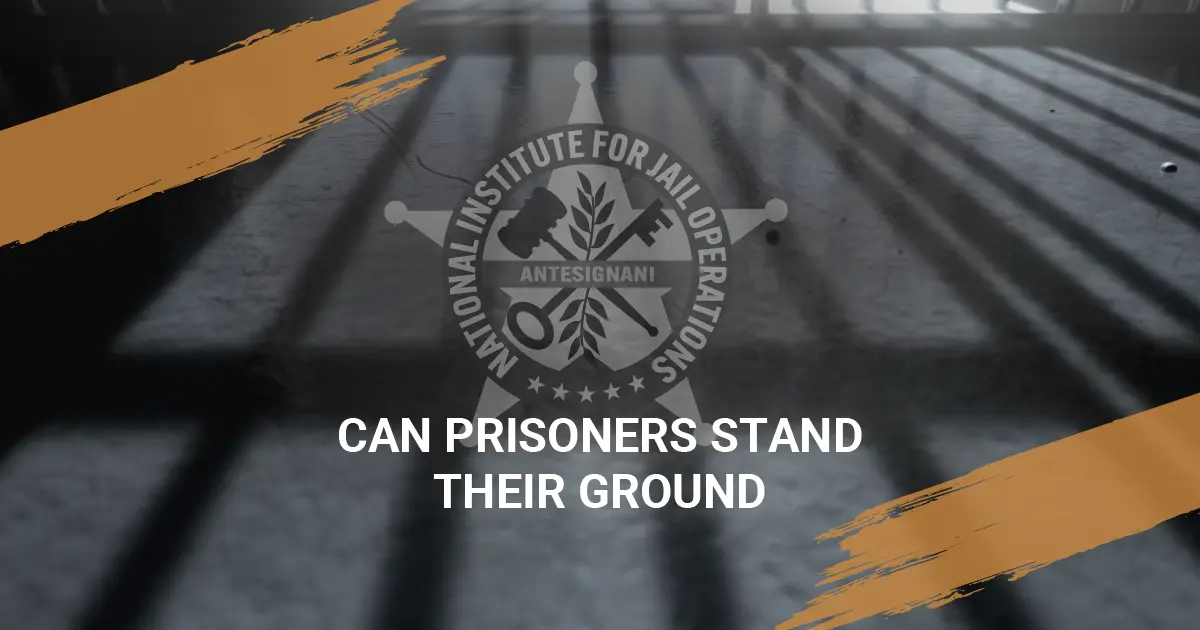By Expert: Blake Hamilton, Esq.
In a recent case, the District of Colorado dismissed murder charges against a prison inmate who claims he acted in defense of an intrusion into his dwelling. In a legal first, he successfully raised Colorado’s “Make My Day” law as a defense in a prison killing. “Make My Day” laws are often associated with “Stand Your Ground” laws, which have recently garnered media attention. These laws both originate from the “Castle Doctrine,” a doctrine originating in English common law based on the idea that a man’s home is his castle, and he may therefore kill in defense of it. However, there are key differences between these two types of laws.
Colorado’s “Make My Day Law”, entitled “Use of deadly physical force against an intruder,” provides that “any occupant of a dwelling is justified in using any degree of physical force, including deadly physical force, against another person when that other person has made an unlawful entry into the dwelling….” Colo. Rev. Stat. Ann. § 18-1-704.5(2). This law is only applicable when the occupant reasonably believes that the intruder has committed/is committing/intends to commit a crime in the dwelling and when the occupant reasonably believes that the intruder might use any physical force, “no matter how slight,” against any occupant. Id. The law also provides that an occupant who meets these requirements “shall be immune for criminal prosecution for the use of such force” and “shall be immune from any civil liability for injuries or death resulting from the use of such force.” Id. § 18-1-704.5(3)–(4). This law is based on recognition by the Colorado legislature “that the citizens of Colorado have a right to expect absolute safety within their homes.” Id. § 18-1-704.5(1).
In contrast, Florida’s “Stand Your Ground” laws, entitled “Use or threatened use of force in defense of person,” provides that “a person is justified in using or threatening to use deadly force if he or she reasonably believes that using or threatening to use such force is necessary to prevent imminent death or great bodily harm to himself or herself or another or to prevent the imminent commission of a forcible felony.” Flor. Stat. Ann.§ 776.012(2). The key provision of this law is that a person in this situation “does not have a duty to retreat and has the right to stand his or her ground…” Id. This law only applies if the person “is not engaged in a criminal activity and is in a place where he or she has a right to be.” Id. This law also applies in justifying the use of deadly force by “a person who is attacked in his or her dwelling, residence, or vehicle.” Id. § 776.013(3).
The key difference between these laws is that Colorado’s “Make My Day” law applies only in the context of a dwelling, while Florida’s “Stand Your Ground” law applies virtually anywhere. Instead of requiring that the person using deadly force be an “occupant of a dwelling,” “Stand Your Ground” laws require only that the person be “in a place where he or she has a right to be.” While the “Make My Day” law is very specific and narrow in its application, the “Stand Your Ground” law is arguably vague and much broader. In this way, “Stand Your Ground” laws represent an expansion of the castle doctrine into a general self-defense doctrine.
The Alaniz case represents a significant departure from the principle underlying Colorado’s “Make My Day.” Alaniz and his cellmate,CO Alaniz Case Make a Prisoner’s Day Law Aaron Bernal, were charged with second-degree murder in connection with the death of inmate Cleveland Flood at the Sterling Correctional Facility. Alaniz claims that they killed Flood because he entered their cell uninvited and armed with a shank. Flood sustained 90 stab wounds. Alaniz invoked the “Make My Day” law claiming that his prison cell is his “dwelling” and that he acted in defense of an intruder. In December 2014, the court dismissed the case against Alaniz on the grounds that he had successfully mounted a defense under the “Make My Day” law. The court’s ruling broadens the application of the “Make My Day” law by expanding the definition of “dwelling” to include a prison cell.
Local officials have expressed concern with the court’s ruling in this case and its potential implications. This ruling raises important safety concerns for both inmates and corrections officials. Because of the availability of this defense, inmates may be more likely to engage in violent or deadly behavior against other inmates or corrections officials who enter their cells without permission. While the inmate must still show that they had a reasonable belief that the intruder might use physical force, the ruling appears to set a low bar. In the Alaniz case, the fact that Flood had a shank was sufficient to show that Alaniz and Bernal reasonably believed that Flood might use physical force. This suggests that an inmate even with a small, makeshift weapon might be a victim of physical or even deadly force at the hands of other inmates defending their “dwelling.” Further, any increase in violent behavior means additional risk for corrections officials tasked with ensuring the safety of inmates at their facilities.
The Alaniz case also raises public policy concerns. The court’s ruling may signal a shift towards a broader application of Colorado’s “Make My Day” law such that it could eventually resemble Florida’s “Stand Your Ground” law. As explained above,the castle doctrine, the original principle underlying the “Make My Day” law was protection of the home. The definition of “home” is “the place where one lives permanently.” A prison or jail cell, by its very nature, is transitory, and therefore, should not be entitled to the same protections as the home. Expanding the definition of “dwelling” to include places of temporary residence could set a dangerous precedent because it could eventually be expanded to include almost any place much like the “Stand Your Ground” law. This could create safety concerns for the general public because of individuals who choose to take the law into their own hands rather than contacting law enforcement. Both law enforcement and corrections officials should be wary of the safety issues created by expanding these self-defense doctrines.
– Blake Hamilton, esq.



